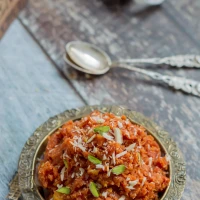Mangoes, with their rich, sweet flavor and vibrant color, have become one of the most beloved fruits around the globe. This tropical treat is not just a hit among humans but has also sparked curiosity within the world of backyard poultry. Many chicken enthusiasts are beginning to ask, “Can chickens safely peck at this sweet treat?” This article dives into the heart of Mango Mania for Hens and explores the nutritional benefits, potential risks, and best practices when introducing mangoes to your feathered friends.
Chickens have a naturally varied diet, which often includes fruits, vegetables, grains, and insects. Integrating fruits like mangoes into their diet could potentially offer health advantages, but it’s not as straightforward as one might think. Ensuring the well-being of your chickens requires understanding what’s safe and beneficial for them to consume. Let’s unravel the mystery behind mango for chickens and determine whether it is a fruitful addition to their diet.
The Nutritional Profile of Mangoes for Chickens
To ascertain if mangoes are a suitable addition to a chicken’s diet, we must first examine their nutritional content and how it aligns with a hen’s dietary needs.
Vitamins and Minerals in Mangoes
Mangoes are an excellent source of vitamins A, C, and E, which are known to enhance immune function and improve skin health. For chickens, these vitamins can chickens eat cabbage contribute to:
- Vitamin A: Vital for maintaining good vision and promoting reproductive health.
- Vitamin C: Although chickens synthesize it themselves, an extra boost can help during stressful periods or extreme temperatures.
- Vitamin E: This antioxidant is crucial for cell function and fat metabolism.
Carbohydrates and Sugars: A Balance of Energy and Moderation
Mangoes, rich in natural sugars, provide an instant source of energy. With a high carbohydrate content, they should be offered as a treat, in moderation, to avoid any negative impacts on can chickens eat mango’ health, including weight gain or disrupted digestion.
Potential Health Benefits of Mangoes for Chickens
While moderation is key, including mangoes in your chickens’ diet can bring about several health benefits. Understanding these can help you make informed decisions regarding treat selections.
Immune Boosting and Disease Prevention
Thanks to their rich antioxidant content, mangoes can bolster the immune system of your hens, potentially reducing the risk of diseases and infections. The antioxidants in mangoes also combat free radicals, contributing to overall healthier birds.
Enhancing Egg Quality
Elements such as beta-carotene in mangoes have been associated with improving egg yolk color, making them not only appealing in color but possibly more nourishing.
Recognizing the Risks: When Mango Becomes a No-No for Your Hens
Despite the advantages, certain aspects of feeding mangoes to chickens must be approached with caution. Here are the scenarios where mango for chickens could turn into a concern rather than a treat.
Excessive Sugar Content Can Lead to Health Issues
Mangoes contain a significant amount of sugar, which can lead to obesity in chickens if over-consumed. Excess weight in chickens is linked to:
- Decreased egg production.
- Higher susceptibility to heat stress.
- Increased risk of parasites and infections.
Pesticides and Chemicals: The Invisible Threat
Like many fruits, mangoes can harbor pesticides and other chemicals on their skins. Offering organic mangoes or thoroughly washing them can mitigate this risk.
The Dangers of Mango Pits and Skin
The pits of mangoes can pose a choking hazard, while the skins can be tough for chickens to digest, potentially leading to impaction. It is always recommended to remove the pit and peel the mango before serving.
Best Practices: Introducing Mangoes to Your Chicken’s Diet
Trial and Error: The Initial Taste Test
When introducing mangoes to your chickens for the first time, begin with a small piece. Monitor their behavior and droppings to ensure there are no adverse reactions.
Frequency and Portion Control: Moderation is Key
Consistency in portion size and frequency of treats is essential. Mangoes should be given sparingly, no more than 10% of their overall diet. This equates to a small piece per chicken no more than once or twice a week.
Preparation and Serving: Safety First
Ensure to remove the pit and peel the mango before offering it to your chickens. Cut the fruit into small, manageable pieces to avoid any risk of choking.
Beyond the Beak: Creative Ways to Serve Mango to Your Chickens
Your chickens may appreciate mangoes in various forms. Here are some inventive ways to incorporate mango into your poultry’s diet:
Frozen Mango Treats for Hot Days
Freezing small pieces of mango can be a refreshing way to help your chickens cool down during hot summer months. It’s also a fun way for them to peck at their treat while obtaining hydration and nutrients.
Mixing Mango with Other Chicken-Approved Fruits and Veggies
Creating a mixed salad of safe fruits and vegetables can make for a delightful and nutritious treat. Try combining mango with bits of cabbage, cucumber, or melon.
Mango Puree as a Special Addition
If your chickens are unenthusiastic about solid pieces, consider offering a small amount of mango puree to spark their interest. This can be smeared on a pecking block or added to their regular feed as a surprise topping.
Addressing Common Concerns and Questions
Will My Chickens Like Mangoes?
While some chickens may enjoy the sweet flavor, others could be indifferent. Observe your flock’s preference and adapt accordingly.
How Much Mango is Safe for My Chickens?
Follow the treat rule of 10%, ensuring mangoes do not displace essential nutrients from their main diet.
Are There Any Chicken Breeds That Should Avoid Mangoes?
No specific breeds require avoidance of mangoes, but monitor individual chickens for any signs of digestive upset.
The Takeaway: Balancing Mango Mania with Hen Health
Mangoes can be a delightful treat for your chickens when offered safely and in moderation. By recognizing the balance between the perks and the cautions, you can add some tropical flavor to your hen’s diet without compromising their health.
Keep Your Flock Clucking with Joy: Embrace the Mango Mania Responsibly
Whether your chickens are new to the world of mangoes or have already developed a taste for this sweet treat, incorporating it wisely into their diet can contribute to a happy, healthy flock. With the information provided, you now have the knowledge to treat your hens to the joyous flavors of mango for chickens while maintaining their well-being. Mango mania might just become the next feathered frenzy at your coop, and you’ll be the responsible poultry keeper who made it possible!










